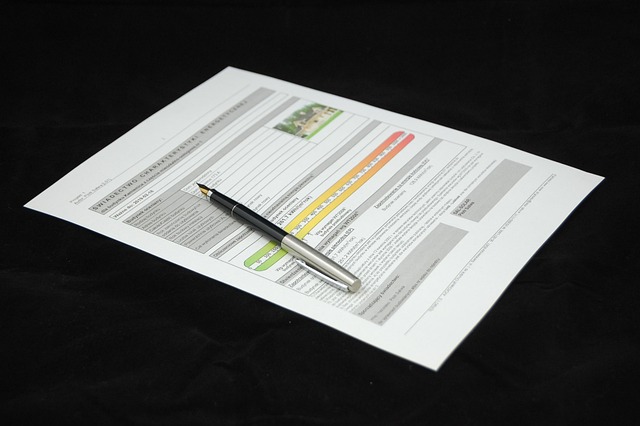Professional translators play a vital role in bridging cultural gaps through accurate translation of UK cookbooks and culinary guides, preserving heritage while making diverse gastronomic cultures accessible globally. They navigate complexities beyond literal interpretations, focusing on precise terminology, cooking techniques, regional ingredients, and safety profiles. Specialized services employ linguistically skilled experts with a passion for cuisine, ensuring culturally sensitive translations that maintain recipe integrity. Rigorous quality assurance processes guarantee high-quality, authentic translations, catering to global audiences while preserving visual elements crucial for user engagement. As the UK culinary scene flourishes, demand for these services surges, reflecting a growing appetite for international dining experiences.
In the global culinary landscape, ensuring quality in translations is paramount. Whether it’s a UK cookbook or a guide showcasing local cuisine, precise communication bridges cultural gaps and enhances the dining experience. This article explores essential aspects of culinary translation, from understanding cultural nuances to selecting the right translators for cookbooks. We delve into the importance of accurate food terminology, adapting recipes, quality assurance processes, visual elements in guides, and market trends driving demand for UK cuisine translations.
- Understanding Cultural Nuances in Culinary Translations
- The Importance of Accurate Food Terminology
- Adapting Recipes for Different Cuisines
- Quality Assurance in Translation Process
- Choosing the Right Translators for Cookbooks
- Visual Elements and Their Role in Culinary Guides
- Market Trends and Demand for UK Cuisine Translations
Understanding Cultural Nuances in Culinary Translations

When translating cookbooks or culinary guides, going beyond mere word-for-word substitutions is crucial. UK cookbook and culinary guide translation services must grasp that food is deeply intertwined with culture—a universal language in itself. Each cuisine carries unique historical, social, and regional influences that shape not just flavors but also preparation methods, ingredients, and even dining etiquette.
Translators play a pivotal role in preserving these cultural nuances. They must ensure the essence of the original text is maintained while making it accessible to a new audience. This involves translating not just recipes but also the stories, traditions, and emotional connections tied to food. It’s about conveying the “why” behind each dish, respecting culinary heritage, and enabling readers in different parts of the world to appreciate and embrace diverse gastronomic cultures.
The Importance of Accurate Food Terminology

In the realm of culinary arts, accurate food terminology is paramount to ensuring quality in translations. When translating UK cookbooks and culinary guides, every word matters—from describing a precise cooking technique to naming a unique regional ingredient. Mistranslations can lead to confusion or even danger, as incorrect instructions or inaccurate descriptions can alter the original dish’s taste, texture, and safety profile.
Therefore, professional translation services for UK cookbooks and culinary guides must employ linguists with not just a deep understanding of both source and target languages, but also a passion for cuisine. They should be able to convey culinary nuances, idioms, and cultural references with accuracy and sensitivity, preserving the essence of each dish and ensuring that readers around the world can recreate those dishes with confidence.
Adapting Recipes for Different Cuisines

When translating recipes for a global audience, adapting them to suit different cuisines is an art in itself. This process involves more than just changing ingredients; it’s about capturing the essence of a dish and its cultural significance. For instance, when translating UK cookbooks or culinary guides into other languages, consider that flavors and cooking techniques vary across regions. A simple spice mix might need a complete overhaul to resonate with a new culture, ensuring the taste aligns with local preferences.
Cultural nuances play a significant role in how recipes are perceived and prepared. What may be considered a standard seasoning in one country could have specific associations or restrictions in another. Professional translation services that specialize in culinary content recognize this and employ linguists who understand these subtleties. They navigate the challenges of translating not just words but also culinary traditions, ensuring that the final product is not only accurate but also appealing to the target audience’s taste buds and cultural expectations.
Quality Assurance in Translation Process

In the realm of culinary translations, ensuring quality is paramount. When it comes to UK cookbooks and culinary guides, precision is key. Professional translation services dedicated to this niche understand that more than just words are being conveyed; they’re translating tastes, textures, and cultural nuances. This involves rigorous Quality Assurance (QA) processes.
From initial manuscript review to final proofreading, every stage is meticulously handled. Language experts not only translate the text but also ensure culinary terminology accuracy, flavor descriptions, and cooking instructions remain intact and adaptable to different cuisines. QA checks for consistency in formatting, measurements, and even cultural references, guaranteeing that the translated content resonates authentically with readers worldwide.
Choosing the Right Translators for Cookbooks

Choosing the right translators for UK cookbooks and culinary guides is paramount to maintaining quality and authenticity. Look for professionals with a demonstrated passion for food and cooking, ideally those who have personal experience in the kitchen or a background in culinary arts. Expert translators not only understand the nuances of ingredients, techniques, and flavor profiles but also grasp cultural context, ensuring that recipes translate seamlessly into another language while retaining their essence.
When selecting a translation service for cookbooks, verify their credentials, including any certifications (e.g., professional translation or culinary degrees). Consider their experience with similar projects, client testimonials, and their approach to quality assurance. A reputable UK cookbook translation service will employ rigorous review processes, proofreading, and editing to guarantee accuracy, readability, and the preservation of culinary intentions across languages.
Visual Elements and Their Role in Culinary Guides

Visual elements play a pivotal role in enhancing the user experience of UK cookbooks and culinary guides, making them more engaging and accessible. High-quality images of dishes, ingredients, and cooking techniques not only spark interest but also serve as essential references for chefs and home cooks alike. These visuals help to convey complex culinary instructions and cultural nuances, ensuring that readers can accurately interpret and replicate recipes from diverse global cuisines.
In the realm of translation services for UK cookbooks, preserving these visual elements is crucial. Professional translators specializing in culinary content must be adept at integrating text and imagery seamlessly, maintaining the aesthetic appeal and information richness of the original guide. This careful consideration ensures that the translated cookbook or guide not only accurately conveys recipes and techniques but also captivates its audience, fostering a deeper appreciation for international cuisines.
Market Trends and Demand for UK Cuisine Translations

The culinary landscape in the UK is vibrant and diverse, with a growing demand for unique and authentic dining experiences. This trend has led to an increased interest in UK cookbooks and culinary guides, both locally and internationally. As global palates expand, there’s a rising need for high-quality translations that capture the essence of British cuisine. Consumers worldwide are eager to explore the flavors and recipes from the UK, making it a lucrative market for translation services specializing in this niche.
The market trend reflects a desire for culinary content that not only educates but also inspires home cooks and professional chefs alike. Accurate and culturally sensitive translations are essential to ensure that the essence of British cooking is preserved and effectively communicated across languages. UK-based translation agencies have recognized this opportunity, offering specialized services tailored to meet the demands of cookbook publishers, restaurants, and food brands aiming to expand their global reach.
In ensuring quality in culinary translations, understanding cultural nuances, accurate food terminology, and adapting recipes are paramount. The translation process must adhere to strict quality assurance standards, and selecting skilled translators specializing in cookbooks is essential. Visual elements play a significant role in enhancing the user experience of UK cookbooks and culinary guides, while market trends indicate a growing demand for these services, particularly for localizing UK cuisine. By combining expertise with a deep appreciation for culinary arts, professional translation services elevate the global accessibility and appeal of UK cookbooks and culinary guides.
